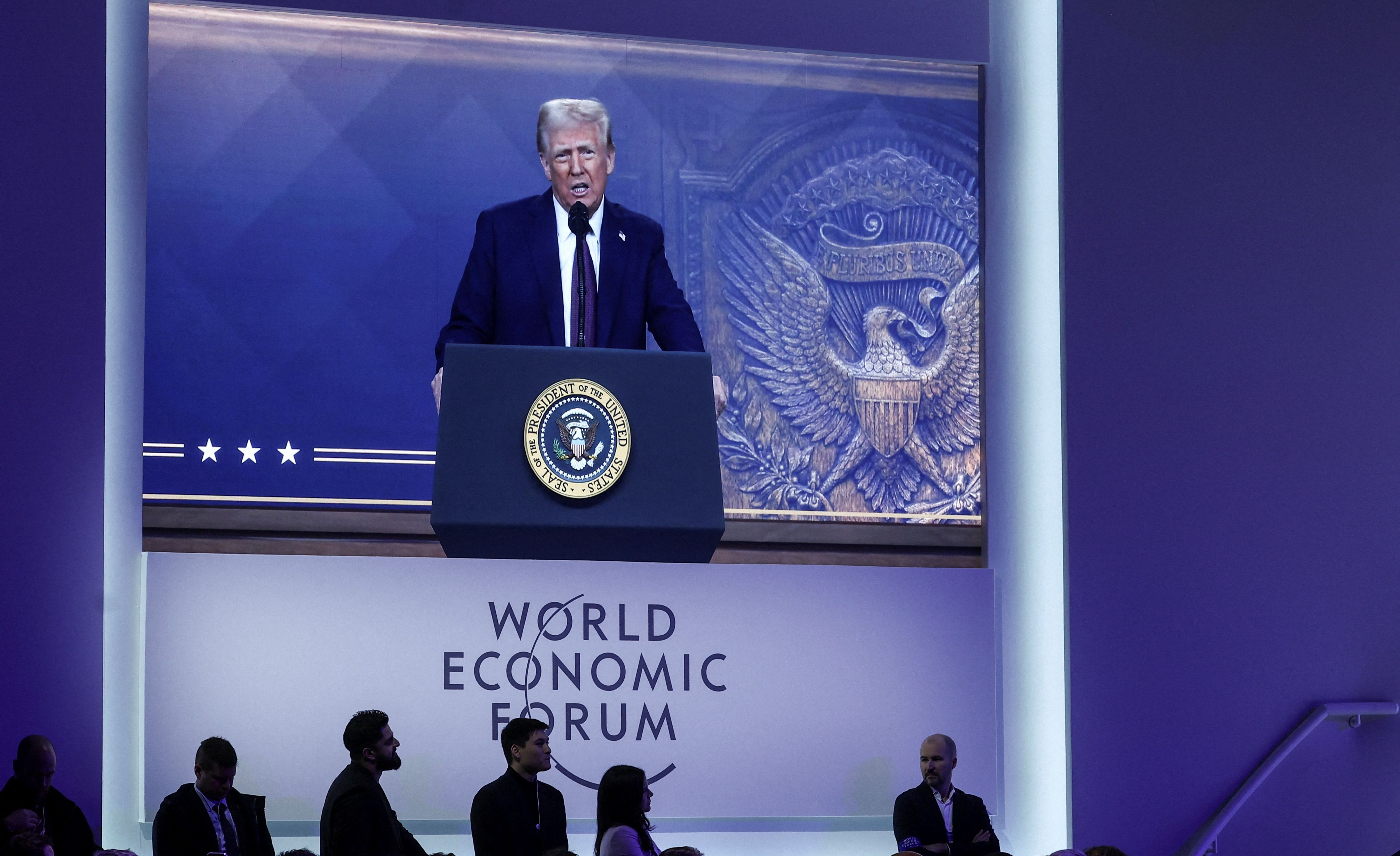Throughout his time in public life, Donald Trump has been nothing if not unpredictable. His public statements can be all over the map, and predicting which of them will be followed up with decisive action has been a losing proposition.
This time it may be different. In his first days in office he has released a torrent of executive orders designed to advance his stated agenda, from mass deportations to cleansing government programs of anything involving even a whiff of the so-called “woke agenda.”
But some promises are harder to keep than others. So it is with Trump’s recent, remarkable remarks at Davos about seeking global “denuclearization” in light of the costs and devastating capabilities of nuclear weapons.
There was no indication that Trump intended to talk about nuclear weapons in Davos. His formal remarks were focused on Biden bashing and self-congratulatory rhetoric about his first batch of executive orders, along with the usual demand that NATO allies spend a higher share of their GDP for military purposes.
Later in his address, he immodestly claimed that “we’ve done more in four days … than other administrations have accomplished in four years.”
But once the bragging stopped and the Q&A began, Trump said the following in response to a question about U.S. relations with China:
“Tremendous amounts of money are being spent on nuclear, and the destructive capacity is something we don’t even want to talk about today, because you don’t want to hear it.”
Trump went on to say, “I want to see if we can denuclearize, and I think that’s very possible,” suggesting that there be talks on the issue involving the U.S., Russia, and China.
Words and deeds often diverge, and an answer in a Q&A session is not the same as a sustained diplomatic initiative. But as with his excoriation of “warmongers” and “war profiteers” on the campaign trail, Trump’s call for denuclearization indicates his belief that there is a market for such a policy among members of his political base, which, in the most optimistic scenario, could open the way to a strange bedfellows pressure campaign to reverse the nuclear arms race and reduce the enormous sums the United States is currently spending to build a new generation of nuclear weapons.
But Trump’s record on nuclear issues during his first term suggests that a note of caution is required in speculating on whether his Davos remarks represent an enduring commitment or offhand rhetoric that will be quickly tossed into the ash bin of history.
Trump I featured his overture to North Korea’s Kim Jong Un for discussions on nuclear reductions. He was (wrongly) criticized for even seeking to talk to the North Korean leader. And the effort collapsed due to lack of preparation and the pull of other issues. Trump the conciliator became Trump the trash talker, threatening to rain “fire and fury” down on North Korea. The about face on nuclear arms reductions was sudden and unexplained.
Three-way talks among the U.S., Russia, and China will be even more challenging than his short-lived effort with North Korea, and there are real questions about whether the Trump team can hang in there long enough to make real progress.
But for the moment the most productive move is to encourage the president to take concrete steps in pursuit of his anti-nuclear rhetoric. Even if he doesn’t ultimately follow through, we have a moment where the public’s attention will be more focused on nuclear issues that it has in quite some time. We need to take advantage of it, and remind people that it is far more dangerous to spend obscene amounts of money building a new generation of nuclear weapons than it is to reduce and regulate these potentially world ending weapons.
















